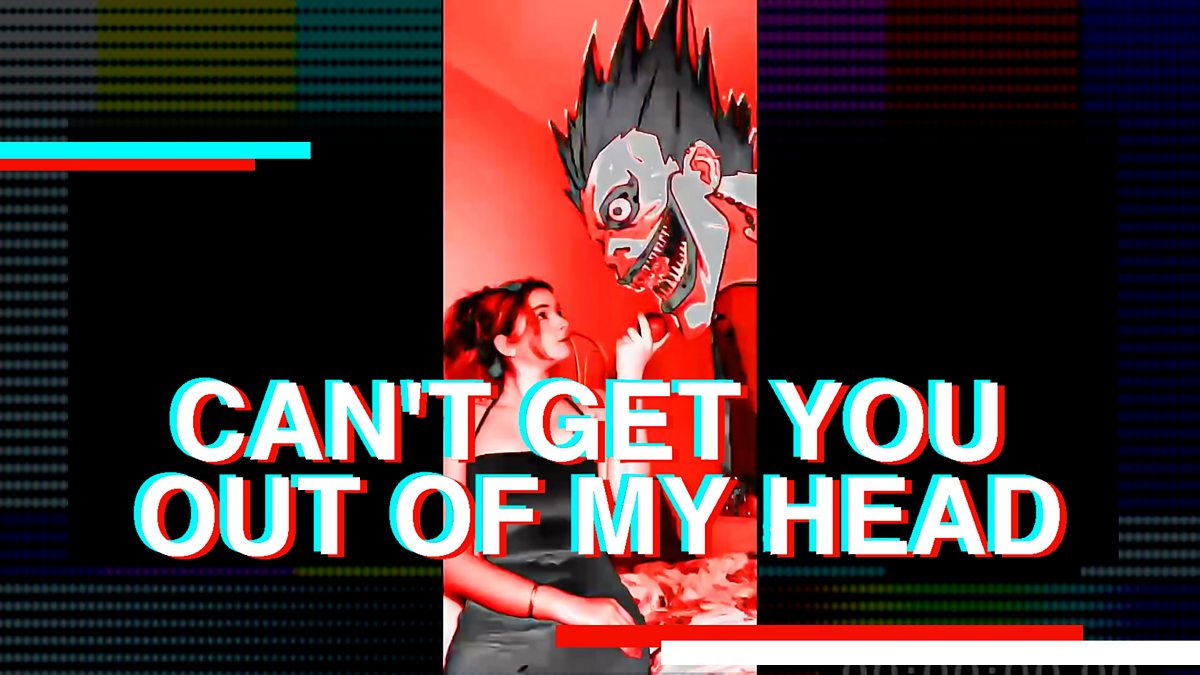
TV Series: I can't get you out of my head
Review of Adam Curtis TV Series 'I can't get you out of my head'. How did our society become this polarised? Why doesn't there appear to be a political route out of our predicament? It pulls out a thread of points which question the value of individualism, role of science and source of meaning.

Documentary Television Series by Adam Curtis, 2021
Adam Curtis's documentaries have been produced over a period spanning more than 40 years, and tend to draw on archive footage (often unused newsreels not previously broadcast or content aired in other countries that a UK audience is unlikely to have seen before). This edgy, patchwork visual style combines with undramatic narration and dramatic sound effects, which makes them an unusual watch compared to most broadcast television but proves an effective medium for communicating complex and nuanced points. This series 'I can't get you out of my head', was first show in 2021. It is made up of 6 episodes lasting between 1 and 2 hours each. So it's a comparable time commitment to reading a book or watching a 10 part crime drama. However, unlike most suspense-based television, it will not keep you gripped, heart racing, and seemingly unable to resist the temptation of the next episode. In many ways, it more like some of Green House's longer publications or books by Amitav Goush / Danial Immerwahr – thought provoking, but in need of digestion through either discussion or contemplation. Not binge watching material unless you have got a notebook and the pause/rewind button handy......
The series is introduced as a tale about how our societies have become so polarised, unequal and seemingly ever more corrupt societies. It tries to unpick not only the events and dynamics that led us here, but also why there doesn't appear to be a political route out of our predicament. To do this, it explores issues including identity, nationalism, neuroscience, perceptions and expectations of science and technology, conspiracy theories, cultural ideas, and world events. The series focuses its analysis on four countries: Britain, America, Russia, and China. It dismantles any illusions that meaningful democracy exists in any of these. The story it weaves encompasses much of the last 150 years and draws on more focused analysis from some of Adam Curtis’s previous documentaries.
The series tries to portray and trace the evolving cultural understanding of the world, people's roles in it, and in particular, the thought processes of movements for political change. This last point is significant because there have always been people and groups unhappy with the political status quo, and willing to make significant personal commitments and sacrifices to achieve political change. However, Adam Curtis charts how these groups’ understanding of the societies they find themselves, their agency and power, and their goals has evolved and been significantly shaped over the past 150 years. Often in ways we might not have expected. For political movements telling stories about their past, their beginnings and their history has always been important, but objectivity is rarely the purpose. Stories about the past are told to shape politics today, and build political support for certain causes, actions or groups. This can lead to distortions, but perhaps more significantly, omissions. How our society got here, and how the political groups you may be part of, or oppose, became what they are today, matters. It tells us about the subconscious assumptions that have been made. The historical pain that's been buried or dredged up. The cognitive difference between the reality of the world we live in and perceptions of that reality in societies, political groups, and individuals. This can have powerful implications. When a great chasm opens up between these, is revealed in public consciousness, and then closes, it can be referred to as the shifting of the 'Overton window' - a phrase often used in political campaigning.
The series makes reference to events and phenomena ranging from the creation of Iraq by British elites after First World War, CIA and MI6 orchestrated coups against elected foreign leaders, and the demise of the British Empire. To China’s cultural revolutions, the Black Panthers in 1960s and 1970s, and creation of technocratic institutions as part of the European Union. It considers new scientific ideas like Chaos Theory and Complexity Theory along with their potential political and social implications. For instance, it asks whether in the face of increasing complexity of our globally interconnected societies, it is possible for anyone to meaningfully predict the outcomes of interventions and whether that leads politics towards a ‘leave the computers to govern the complexity’ technocratic impetus (e.g., the stock market is never wrong). It also considers whether this same sentiment leads activists to become disillusioned. The series considers the thoughts and feelings of a wide range of groups. For instance, whether part of what draws people to collective revolutionary struggles such as Jihadis the lack of meaning in life for the majority of those living in modern oil-money-fuelled Arab societies. Or why Secret Service organisations like MI6 have, at times, seemed to exist in fictional, dreamlike worlds — for instance being unable to predict or understand the collapse of the Soviet Union (for which there might be parallels with the corporate fictions more senior employees can find themselves in).
Out of this diverse web of examples, Adam presents various contradictions and comparisons of which I will mention just two. Firstly, Ethel Voynich, author of the novel The Gadfly (about giving yourself to a cause and how we are defined and given meaning by our community), was the daughter of George Boole, who wrote a book titled “An Investigation of the Laws of Thought on Which are Founded the Mathematical Theories of Logic and Probabilities”. This is from whom we get Boolean Logic, on which all computing today depends, and the idea that mathematics can describe everything humans can think (“Virtue is a habit, and not a faculty or a passion”). Secondly, the use of fear and romanticised fictions about the past to make people feel a sense of safety and security is a common theme across political groups from Islamic State to the Brexit lobby, from Trump to the Ku Klux Klan.
One strand which the series keeps returning to is the rise, evolution and consequences of individualism. This isn’t as much about freedom of thought, as it is about advertising and culture, and Adam Curtis contrasts Russia and China under communism with the UK and USA to amplify this point. He also explores the history of how advertising became as manipulative and subliminal as it is today. The summary is: capitalist profit motives plus psychology and neuroscience developments, combined with computers and big data. Recently an academic paper titled ‘The behavioural crisis driving ecological overshoot’, has described this as ‘Mass Behavioural Manipulation’. The series presents this not as an unfortunate side effect of liberal democracy and free-market economics, but as social governance through corporate advertising (as opposed to state propaganda). It’s origins, the series suggests, lie in West Germany’s police apparatus’s attempt to catch domestic terrorists, and it’s purpose is stability. Keeping the human population in a consumption-filled hedonistic dream world to distract them from political ideas or historical grievances. It was the technocratic answer to the difficult post World War Two political question of
‘What if free and fair elections give power to fascists, racists and separatists?’
However, ecological consumption associated with the maintenance of that dream world is unsustainable and crumbling – political stability in a society which is destabilising the planet is self-destructive. Moreover, the dream itself becomes difficult for people to believe when their material means are declining, and the evidence the system is broken is ever growing. The facade of progress is fraying. This starts to unlock all the fear, pain, and resentment that the dream had been suppressing. A dream is only a dream if we believe we’re in it. Adam Curtis suggests that Trump and Brexit are political exploitations of this by those outside of the political mainstream.
Below are a thread of points raised from the series that give an insight into some of the difficult questions the series sets up. They may feel a little jarring and disparate, and that is in part a reflection of the massive scope Adam Curtis explores. However it is also a necessity of engaging with this topic. Our culture has deliberately made taboo many of the questions and research paths that leads people to questions the status quo:
- What primarily gives people meaning is the society, community and power structures around them ... not what inside their heads… (or mostly not).
- Individualism leaves you weak and alone when things go wrong.
- The modern global financial system presents no story of the past, and no vision for the future.
- In de-industrialised areas of the UK and USA (e.g. the rust belt) there is a sense of despair and feeling that everything is pointless, nothing is possible, it's impossible to know what to believe and what not to believe.
- Science has no meaning: it is purely a tool. Humans give science meaning in how they choose to use it’s methods.
- The UK, USA, Russia and China are all:
- Old and decaying
- Riddle with corruption
- Have an ageing population
- Devoid of new ideas
- Violent revolutionaries tend to unleash violent forces that they can't control and become overwhelmed by the suspicion, paranoia and horror that they unleashed.
This last point is particularly significant. Adam Curtis suggests it has led some radicals to believe they were the problem, causing them to become pessimistic about the possibility of changing society. This links to another point, that the series suggests is a relatively new concept in public discourse (emerging in the last 50 years): global solidarity. There are no 'good people' and 'bad people', no 'good deaths' and 'bad deaths' – just the horror of violence and suffering. This raises questions which get asked, but perhaps not answered:
- Does creating and sustaining a rich and powerful state require power structures and oppression?
- Are these necessary to keep buried historical division, hatred and violence that can destabilise societies?
- Does greater scale, diversity, and specialisation in a society make this even more true, making centralised storytelling and repressions more necessary?
- Should people accept the notion that anything that cannot be achieved through non-violent action is not worth pursuing?
This brings us back to Ethel, The Gadfly, and the thread Adam Curtis weaves through the series. Is individualism in conflict with collectivism? Are we first and foremost part of a community, or are we first and foremost ourselves? The answers to that question are complex and still open, but have implications for what futures are possible and how we navigate the increasingly inevitable end to the consumerist dream. Many greens might argue there is a middle ground. That people can have some individual freedom, but community must be a crucial part of not just our day-to-day- lives and systems of provision, but also of our identity. What governance and economic arrangements might allow and sustain such a middle ground is less clear.
The series ends by propositioning three possible futures and a quote:
- Individualism will disappear (including individual freedom) – Data will be used to predict and manage human behaviour
- Individualism will continue, managed by a beguine elite
- Something genuinely new…. (which requires us humans to imagine it)
"The ultimate hidden truth of the world [human societies] is that it is something that we [humans] make, and could just as easily make differently..." - David Graber

Related Work by Green House Think Tank





